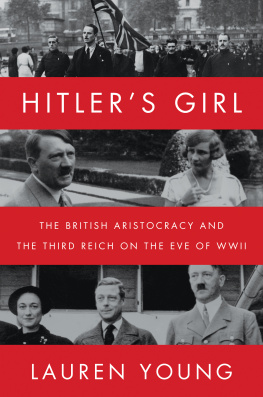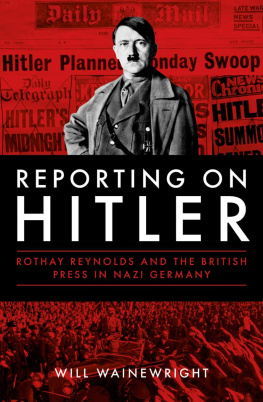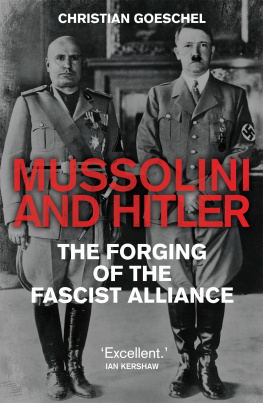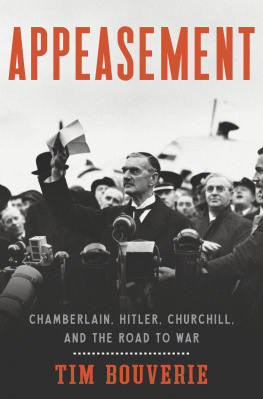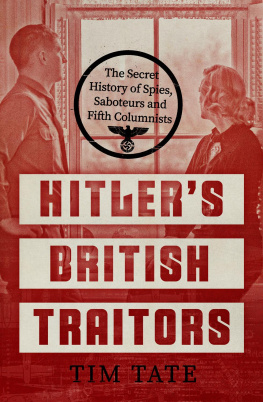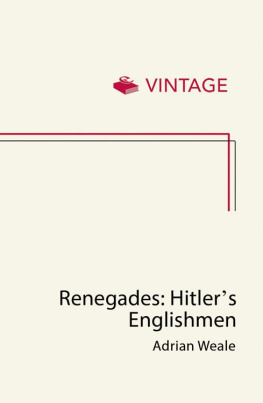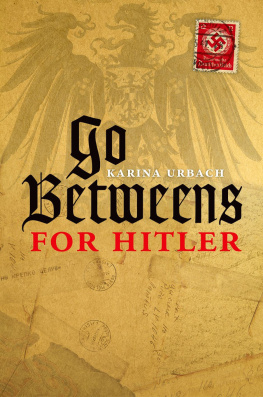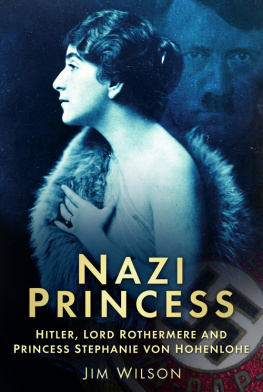
Union Jack: Philip Openshaw/Shutterstock
To
Anna Sophia, Charlotte, and Paul
Contents
If you pluck a chicken one feather at a time, nobody notices.
Mussolini
I wrote most of this book unthinkably isolated with my family in our New York City apartment during a global pandemic. Our solitude was punctuated by a terrifying blare of ambulances speeding up and down the avenue, their sirens amplified by the empty streets. There was nowhere to go and a lot of time to reconsider many things.
The political theater in the press was one of our few distractions, with daily accounts of brazen assaults on our democratic institutions, both at home and abroad. I had the nagging sense that the postwar liberal democratic heritage that we had always assumed would be our birthright was starting to feel like a losing hand of poker. The game keeps us engaged, although the winning hands are fewand there seems to be a lot of cheating. As defenders of the democratic tradition, we were watching the chips pile up in adversarial hands, hoping that the tide would change, without ever folding and reevaluating both the gravity of our loss and a better strategy.
As I write, eighteen states in the United States have passed laws making it harder for citizens to vote. After decades of efforts by the Federalist Society, the composition of the US Supreme Court has endowed seats for life to an ultraconservative majority that does not reflect the will of the people on banner issues like abortion. Political polarization, which has marched hand in hand with income inequality since the end of the Second World War, is reaching new vertiginous heights, amplified by a cohort of vaccinated Republican governors who wave the flag of civil liberties in relentless maskless anti-vax campaigns that are filling hospitals to capacity with unvaccinated believers dying of COVID. While we can protest the infringement on our civil liberties to end a global pandemic through vaccine mandates, we are free to eclipse a womans basic sovereignty over her own body exemplified by the restrictive abortion law recently passed in the state of Texas, taking direct aim at Roe v. Wade, a Supreme Court decision dating to the 1970s that is supported by a majority of Americans. The tides of anti-Semitism are rising, not just in the United States where reported acts of anti-Semitism remain at historic highs. Alarmingly, basic truth, either spoken by our elected officials or in the echo chambers of social media, is elastic and negotiable.
The losing chips seem to be piling up.
None of the assaults on our democracy are new, just the examples we use to describe them. There has been a debate about the democratic continuum that goes back to the sages of ancient Greece. In fact, these symptoms of democratic decay are all too familiar. After all, Hitler was democratically elected and even voted for by many Jews in the vain hope that being on his side would spare them the worst of his threats. German Jewish newspapers in the 1930s flatly refused to believe that Hitler would execute on his worst stated instincts. Europe in the 1930s had many similar warnings to today, mostly ignored or rationalized.
A new wave of populism, both in Europe and the United States, demands that we view the rise and ultimate demise of Fascism in the 1930s differently. Sometimes, these lessons are found in the least likely of places. What started as an ordinary country pub lunch on an unusually sunny Sunday before the Brexit vote in June 2016, just days before the British vote to leave the EU, revealed the enduring British fascination with the legacy of World War II. Billboards proclaiming Gerries Go Home! evoked the Second World War front and center at the core of the British psyche today. Remarkably, the archives of British history present an entirely different and hidden history of Britain in the 1930s, one marked by German complicity at the highest ranks of British society. The narrative of the brave forces upholding democracy and a fragile new world order could just as easily have tipped the other way in England, the flash point of liberal democracy in the days leading up to the war.
There are many implicit parallels to England in the 1930s in todays world. One of the most troubling is complacency and its repercussions. During this period in England, from Chamberlains policy of appeasement to a groundswell of support for Hitler among the British ruling class, the future of democracy turned on the head of a pin. The potential for Britain to succumb to Nazi Germany was a real possibilityand a probability that was avidly advanced by an influential segment of the countrys elite and systematically covered up by its government as too dangerous to reveal, even decades later. The statute of limitations on many intelligence files classified during this era, some of which were categorized as such as recently as during the Kennedy administration, are expiring now at another urgent moment. The irony of this information becoming available at a similarly perilous ideological moment presents a great opportunity to take a closer look at this period, which until now has never been examined from this perspective.
The rise of Fascism in Nazi Germany was powered by the humiliating loss of the First World War and those whose interests were overlooked by twenty successive and unsuccessful Weimar governments leading up to Hitlers election to chancellor in 1933. Fascism in England was arguably even more insidious, largely the handiwork of the elite ruling class in a bid to preserve its power. Influential segments of the British aristocracy formed a murky fifth column to Nazi Germany, and elements of the British ruling class almost succeeded in tipping the pendulum in Hitlers favor. How could the twenty-two-year-old aristocrat Unity Mitford meet with Hitler more than 160 times between February 1935 and September 1939, espousing Nazi vitriol, without the British government ever taking a real interest? A dangerous combination of complacency and complicity among those with power and influence in England during the 1930s nearly toppled a proud and long-standing democratic tradition.
If Britain, along with the rest of Europe, had fallen to the Nazis, approximately a quarter of the worlds population would have lived under Fascist control, likely for generations. While the story of the Nazi march through continental Europe is well documented, Britains ideological vulnerability has been largely overlooked. The British archives also reveal the peril with which democratic institutions were challenged in England during this period and tap into contemporary debates about immigration, religious differences, income and gender inequality, free speech, the press, and the moral obligations of ethical political leadership. How far those in power were willing to go to maintain their grip is the untold tale of Britain in the 1930s.
* * *
I began to think about the period of the 1930s in England some years before the accelerated erosion of democracy that has characterized the maelstrom of political life in the United States, Britain, and many other European countries since. My interest originated in my classroom at the London School of Economics, where I taught about the policy of appeasement. This happened at the same time as the statute of limitations on intelligence files expired on many classified documents locked up for posterity. I was immediately struck by the irony of these documents being declassified at a time when our own Western liberal democratic tradition was facing serious challenges. As I began digging through these files at the British National Archives at Kew, what I found was not the defense of the policy of appeasement, which I expected, but a hidden history of collaboration and a newfound sense of alarm.

